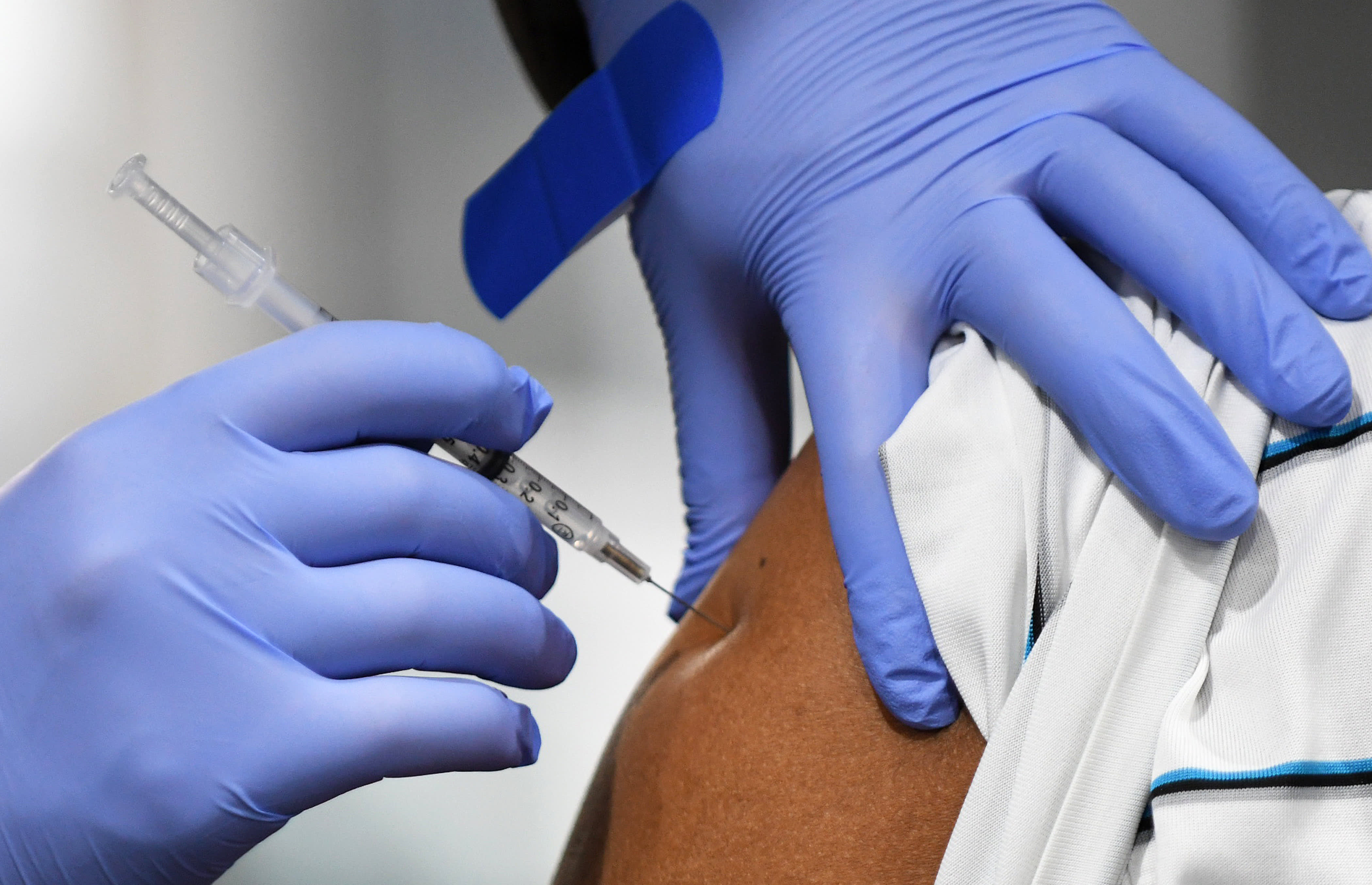
A nurse administers a shot at the FEMA-supported COVID-19 vaccination site at Valencia State College on the first day the site resumed offering the Johnson & Johnson vaccine.
Paul Hennessy | LightRocket | Getty Images
An influential Food and Drug Administration advisory committee on Friday said the agency should authorize boosters of Johnson & Johnson‘s single-shot Covid-19 vaccine to the more than 15 million Americans who have already received the initial dose.
The unanimous vote – by the agency’s Vaccines and Related Biological Products Advisory Committee – is a critical step before the U.S. can begin giving second shots to J&J recipients, some of whom have said they are anxious to get the additional protection. One dose of J&J’s vaccine has been shown in studies to be comparatively less effective than the two-dose messenger RNA vaccines made by Pfizer–BioNTech and Moderna.
The panel recommended the boosters to everyone 18 and over who’s already received J&J’s first shot at least two months after the initial dose. Many committee members said it should be considered a two-dose vaccine much like Moderna and Pfizer’s.
The same committee on Thursday recommended Moderna booster shots to people ages 65 and older and other high-risk adults, in line with guidelines for Pfizer’s vaccine.
The FDA usually follows the advice of the committee, and a final decision by its regulators could come within days. The agency is not the final go-ahead, however. Next week, a Centers for Disease Control and Prevention vaccine advisory group will decide who should get the extra J&J shots. If it issues a recommendation and CDC Director Dr. Rochelle Walensky signs off, booster shots could begin immediately.
J&J, which received authorization for its vaccine in late February, asked the agency to approve a booster shot of its one-dose vaccine for people ages 18 and older on Oct. 5. It has submitted data that shows a second dose boasts similar performance to the mRNA vaccines, boosting protection against symptomatic infection from 72% to 94% when administered two months after the first dose in the United States.
Days before the meeting Friday, FDA scientists published an analysis on J&J’s application for a booster, questioning the strength of the data. The FDA said people may benefit from a second dose, but added the information provided by the company was limited and the agency hadn’t verified all of it yet. It acknowledged a single J&J dose was consistently less effective than the mRNA vaccines in clinical trials and in real-world studies.
Before the vote, some committee members asked the FDA whether they could postpone a decision on boosters, saying it may be too early as there are still a number of outstanding questions. Other members wondered why the agency brought J&J’s application before the committee before it was able to verify all of the data.
“Is there an option of saying it’s a little early? There are a number of issues that are still outstanding,” said Dr. Cody Meissner of Tufts University. “There are a lot of uncertainties, at this point, making it hard to vote for or against this tonight.”
Although committee member Dr. Michael Nelson said J&J’s data was “a little bit immature and somewhat scant in multiple areas,” he said he thought the safety and efficacy data they had so far was enough to support emergency use in the U.S.
“I certainly agree with my colleagues that this does look more like a two-dose vaccine,” he said.
In explaining the speediness of the review, committee Chair Dr. Arnold Monto noted the lower performance of J&J’s one-shot vaccine compared with Pfizer and Moderna’s.
“There is a public health imperative here,” he said, “because what we’re seeing is this is a group with overall lower efficacy than we have seen with the mRNA vaccines so there is some urgency to do something.”
FDA officials acknowledged during their presentations before the panel that J&J’s trials were completed with small sample groups of participants, making it difficult to draw conclusions on the data. Dr. Peter Marks, the agency’s top vaccine regulator, asked that the panel move forward with the meeting and address any members’ outstanding concerns at the end.
Dr. Johan Van Hoof, a J&J vaccine development executive, told the committee that boosters administered six months after the primary dose resulted in a 12-fold increase in antibodies.
Administering boosters after six months also yielded a proportional increase in the vaccine’s effectiveness against Covid variants, including the highly transmissible delta strain, Van Hoof said. The company’s data is based on a group of 17 volunteers ages 18 to 55. A larger study of 51 trial participants saw a nearly 5-fold increase in antibodies from a J&J booster given two months after the first dose.
The 17 participants in J&J’s six-month trial experienced no new adverse side effects, FDA medical officer Dr. Timothy Brennan told the agency’s advisory committee. Of the participants, roughly 47% reported headache symptoms, 26% reported fatigue and 21% reported myalgia, or muscle pain, after receiving a J&J booster.
There is no data to suggest people are at increased risk of a rare, but serious, blood clot condition after receiving a second dose of J&J’s vaccine, according to J&J executive Dr. Macaya Douoguih.
She presented data from the U.K. on second doses of AstraZeneca’s vaccine, which uses a similar platform to J&J’s. The data shows the rate of vaccine-induced immune thrombotic thrombocytopenia, or VITT, after a second dose was less frequent than the first.
“Although the vectors are not entirely the same, the data may provide some insight into potential risk,” Douoguih said.
This is a developing story. Please check back for updates.




